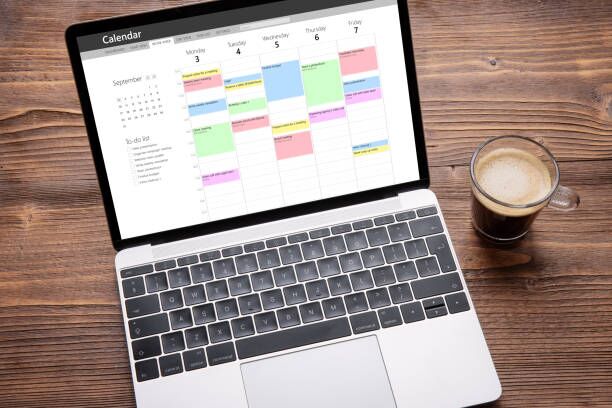Are you struggling with scheduling conflicts, missed appointments, and never-ending “back-and-forths” while trying to coordinate a meeting? Have no fear! This comprehensive guide will walk you through five easy steps on how to craft an ideal hourly and weekly planner.

The Importance of Planning in Today’s Fast-Paced World
Before we delve into the steps to create the ideal hourly and weekly planner, it’s essential to understand the significance of planning in our modern, fast-paced world.
Life in the 21st century is synonymous with a constant barrage of tasks, commitments, and ever-evolving responsibilities. The digital era, while beneficial, has also inundated us with information and increased the pace of our daily lives. This acceleration has made effective planning more crucial than ever.
Why Planning Matters:
- Mental Clarity: With numerous tasks at hand, a planner provides a tangible space to declutter our minds, promoting mental well-being.
- Enhanced Productivity: A structured approach ensures that we can maximize our time and accomplish tasks efficiently.
- Goal Setting and Achievement: A planner acts as a roadmap, helping us set, track, and achieve both short-term and long-term objectives.
- Work-Life Balance: In a world where the boundaries between work and personal life often blur, effective planning aids in demarcating and managing these spheres.
With the importance of planning established, let’s explore how to craft a planner that caters to these demands and optimally supports our modern lifestyles.
6 Steps to Create the Perfect Hourly and Weekly Planner
Step 1: Define Your Goals and Priorities
Before you dive into designing your planner, it’s essential to understand what you want to achieve with it.
- Short-term Goals: These can be tasks or activities you want to accomplish within the week. For instance, finalizing a project or attending a workshop.
- Long-term Goals: These can range from monthly to yearly goals. Perhaps you’re aiming for a promotion or planning a vacation.
- Priorities: Recognize what takes precedence in your life. Is it work, family, self-care, or a mix of various elements?
Step 2: Define Your Time Slots
Anyone planning their day becomes adept at visualizing time slots – those hours or half-hours when you’re free for appointments. Whether you prefer setting up individual calls or group meetings using Weezly defining precise timelines is pivotal.
Step 3: Categorize Your Events
The next step involves categorizing your events. You might use platforms like Weezly to classify meetings as “one-on-ones,” “team meetings,” or even “recurring check-ins.”
Sections to Consider:
- Daily Breakdown: Hourly slots for appointments, tasks, and breaks.
- Weekly Overview: A snapshot of your week with major tasks or events.
- Notes Section: For jotting down ideas or reminders.
- To-Do Lists: Segregated by priority or theme (e.g., work, personal, urgent).
- Monthly Calendar: For long-term planning and tracking of important dates.
Step 4: Personalize Your Scheduler
Personalization enhances connection with clients and streamlines processes. Tools like Weezly allow you to customize your scheduling page with branding elements, personal messages, and much more.
Step 5: Integrate With Other Applications
Integration with other applications is critical for the seamless organization of schedules. Consider syncing your scheduling tool with Google Calendar, incorporating email services, CRM systems, and video conferencing software like Zoom or Google Meet.
Step 6: Detect Time Zone Differences
With global remote work and multi-national clients on the rise, time zone differences often pose a challenge in planning. Tools like Weezly provide automatic detection and conversion of time zones making it easier to schedule meetings.
Pro Tip: Keep on top of managing different time zones with dedicated features offered by platforms like Weezly.
Conclusion
A well-structured hourly and weekly planner is not just a scheduling tool but an extension of your thoughts and aspirations. By defining your goals, choosing the right medium, designing a conducive layout, incorporating time-management techniques, and regularly reviewing and adjusting, you’re setting yourself up for success.
Remember, the essence of a planner lies not in its aesthetic appeal but in its ability to reflect and accommodate your ever-evolving life.